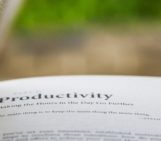
Mind Your Head is a blog series dedicated towards addressing mental health in the academic environment and highlighting solutions relieving stress in daily academic life.
Research has shown that almost 50% of people working in academia suffer from mental health issues (e.g. Winefield et al. 2003; The Graduate Assembly at the University of California Berkeley 2015; Levecque et al. 2017). Factors like job insecurity, limited amount of time and poor management often cause high stress levels and can lead to mental health problems, such as depression, anxiety or emotional exhaustion.
Even though these problems are pervasive in academia, openly discussing these issues is not easy. People are reluctant to come forward about their difficulties for fear of being judged and loosing career chances, while support mechanisms are poorly advertised.
Particularly at risk are those starting out their research careers. Early career scientists find themselves in a very competitive environment, facing high expectations to publish papers. Too often this results in working much harder than is good for anyone. Personally, I feel that a happy researcher produces better results in the end: so why compete instead of collaborating, or doubt instead of discussing? In the end, too much competition doesn’t drive your productivity, but hinders it instead.
Initiatives such as university support systems, time management courses or training in supervision are thus very important, and I call for those to be incorporated more frequently and more visibly in academic environments.
And even though problems like an unsupportive university, or an overstretched supervisor should be solved to improve the situation, we must not forget that we can do a lot ourselves as well. While many studies focus on institutions’ role in addressing mental health issues in academia, I would like to focus more on coping mechanisms for individuals, with special emphasis on early career scientists.
Through this short series of blog posts, I will address several topics that are often related to the high stress levels many of us experience, incorporating some of the advice I gathered from senior scientists and research management advisors.
Note that mental health issues are serious and should always be addressed with the help of professionals. Remember, acknowledging that things are not going well and seeking help is a sign of strength, and never a source of shame! The advice in this blog series should be seen as a complement, not an alternative, to seeking professional help.
So, to kick off this series, what can we do to deal with stressful circumstances and create a more relaxed working atmosphere for ourselves?
Communication is key
In my opinion, one of the most important tools is communication. The social stigma around mental issues in academia (or almost any other sector) is large and creates the tendency for people to keep their problems to themselves (Wynaden et al., 2014). However, communication is one of the key ingredients for solving a whole range of emotional problems, including those related to stress.
An easy example: if you don’t tell your advisors that something is going wrong, they won’t know about it and will not be able to help you fix it. Usually, your professors have thousands of things to do, and might not notice when you are upset, unless you actively tell them.
In addition, communication with your fellow early career scientists (PhDs and post-docs alike!) is important, since you are not the only one struggling. And odd as it sounds, it really does help to know you are not alone. In most cases, your colleagues will understand how you feel in a certain situation and might even give you some advice on how to solve it.
Setting your boundaries
Apart from communication, it is very important to be aware of your own boundaries. If there is no more energy left, there is no more creativity either. So make sure you recharge your batteries on time! Sometimes the best solutions come to you when partaking in sports, while riding the bus, or simply after a good night sleep. If you are aware of your own mental state, it can be easier to find a way to deal with it, seek the help you need, or simply give yourself permission to take off early for one day.
Of course, being an early career scientist will still be hard work; that is part of the job. But there is a difference between hard work and struggling. Getting a PhD degree is an achievement that requires you to work independently on a long-term project, facing many challenges along the way. But it is also an incredible experience during which, first and foremost, you are supposed to have some fun.
The joy that stems from doing research should not be mainly driven by awards and recognition, but because you are creating new things, gaining new knowledge, improving something or trying to understand the world a bit better! If this joy gets lost along the way, then something has to change. One aspect of learning how to become an independent researcher is not talked about enough: how to be in charge of yourself and your project, how to take control of the situation and make the necessary steps that you need to be a happy scientist!
By Elenora van Rijsingen
Written with help and revisions of Anne Pluymakers & Olivia Trani
References
Levecque, K., Anseel, F., De Beuckelaer, A., Van der Heyden, J., & Gisle, L. (2017). Work organization and mental health problems in PhD students. Research Policy, 46(4), 868–879. http://doi.org/10.1016/j.respol.2017.02.008
The Graduate Assembly at the University of California Berkeley. (2015). Graduate student happiness and well-being report 2014. Retrieved from http://ga.berkeley.edu/wp-content/uploads/2015/04/wellbeingreport_2014.pdf
Winefield, A. H., Gillespie, N., Stough, C., Dua, J., Hapuarachchi, J., & Boyd, C. (2003). Occupational stress in Australian university staff: Results from a national survey. International Journal of Stress Management, 10(1), 51–63. http://doi.org/10.1037/1072-5245.10.1.51
Wynaden, D., McAllister, M., Tohotoa, J., Al Omari, O., Heslop, K., Duggan, R., … Byrne, L. (2014). The silence of mental health issues within university environments: A quantitative study. Archives of Psychiatric Nursing, 28(5), 339–344. http://doi.org/10.1016/j.apnu.2014.08.003





Bryan Lougheed
“The joy that stems from doing research should not be mainly driven by awards and recognition, but because you are creating new things, gaining new knowledge, improving something or trying to understand the world a bit better! ”
I agree. Perhaps we could get the EGU to consider abolishing their awards and medals?
C. Neugebauer
I accordance to the article by R. van Rijsingen, I agree that too much pressure to succeed is built on young scientists. Further, it is equally important to admit failures and build on them. This is part of professional and personal development, but is often neglected in the sciences. Taking the pressure off oneself and taking a more easy approach to things is therefore something that should be supported by the institutes and supervisors. At a time when young scientists themselves have to be responsible for funding in order to finance their positions and projects, it is also necessary to make changes to the university structures.